I always kind of thought that altitude sickness was just a fancy way of saying that some people didn’t like being in the mountains. Until our trip to Breckenridge, Colorado I had never experienced any of the symptoms of altitude sickness or had to deal with its effects. Well, I’ve learned my lesson: it’s real, it’s tough, and it’s serious.
We’ve put together our best tips for preventing altitude sickness, for dealing with it when it hits, and for recovering from altitude sickness. It’s not just being tired, so heed our warnings and learn from our experience.
Note: we are not medical professionals and these tips to prevent and recover from altitude sickness are from our own experience. Consult a medical professional with any questions or for more information.
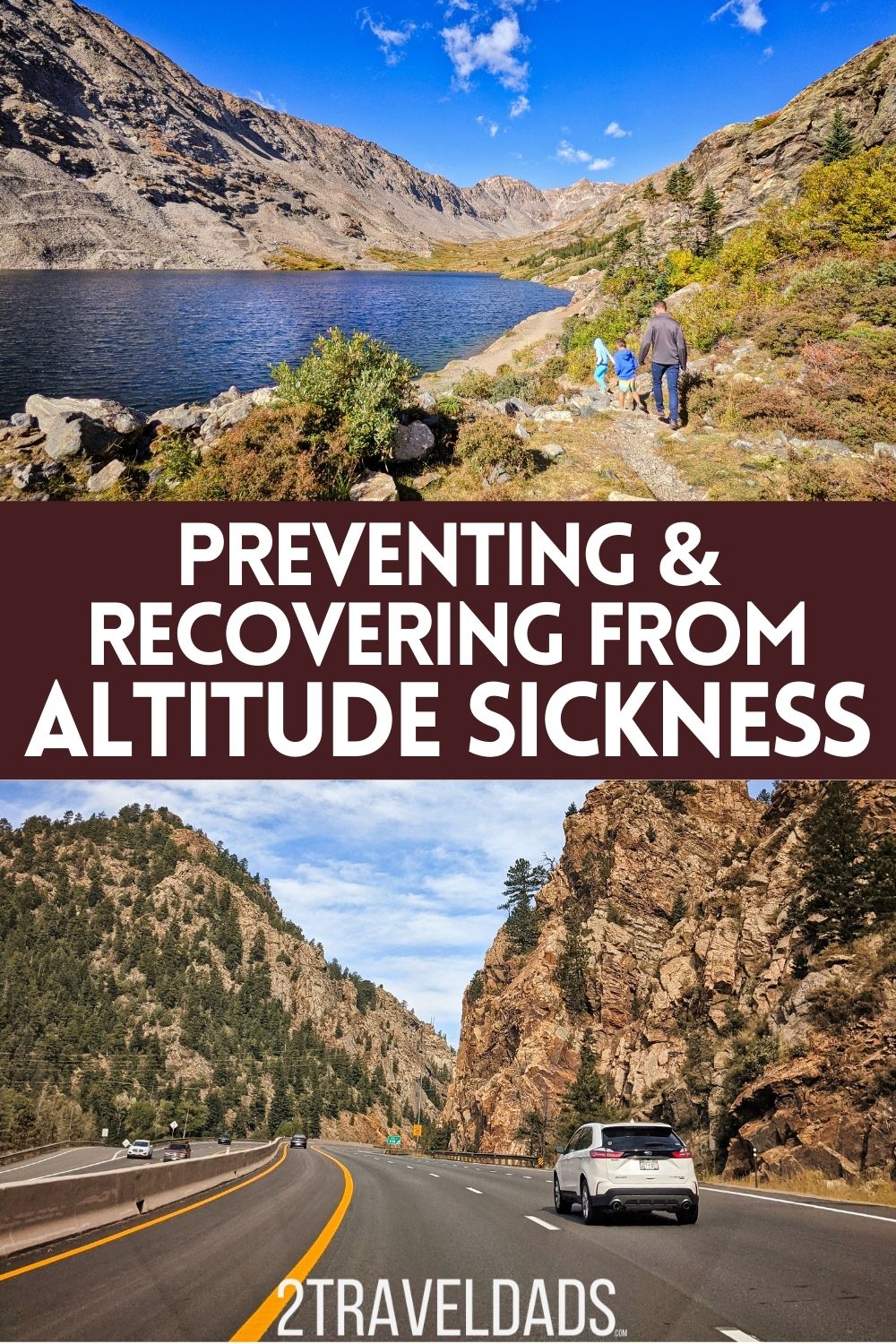
What is altitude sickness?
First of all, altitude sickness is NOT a made up disease or condition, but is a very real occurrence for many people. It is an illness that happens when a person’s body doesn’t acclimate to a very adverse climate. It can set in within a day or after several days at high altitudes. Whether or not a person feels the effects of altitude sickness is determined by their standard living environment, their activities once in a new place, and their overall healthy habits, both before and after arriving at high elevations.
Altitude Sickness Symptoms
While altitude sickness may present differently in everyone, the most common symptoms travelers face are headaches, tight chest or shortness of breath, and bloody noses. Additional symptoms, and these are more dependent on your diet and how you adjust your habits, include constipation or diarrhea, faintness, fatigue and body aches.
Some people are really lucky and can travel from sea level to twelve thousand feet and never feel a thing, but that’s rare. Even the healthiest people with really good diets and physical habits can suffer the symptoms of altitude sickness.
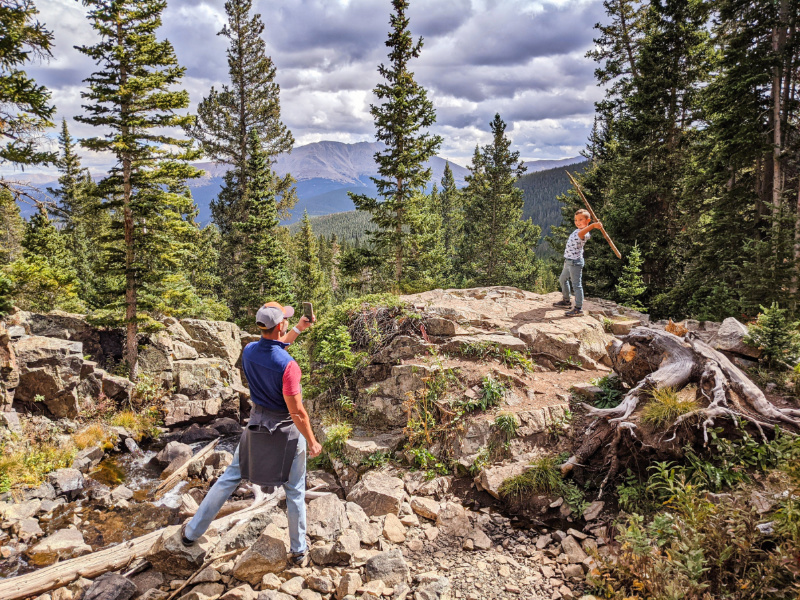
How do you get altitude sickness?
Altitude sickness isn’t something you contract like a cold or the flu. A person gets it by being at higher elevations than their body is used to, and then not being able to acclimate well or fast enough to the different environment. It’s also called Acute Mountain Sickness There are several elements that contribute to altitude sickness:
- Thinner air, less oxygen
- Dry climate, no humidity
- More intense sun exposure
- Lesser air pressure on the lungs and body
The combination of these factors makes altitude sickness take effect within a day or two of being at much higher elevations than you’re used to.
For example, we live 8 feet above sea level in Florida. We have stronger air pressure, lots of oxygen in our air-mix, and the climate is extremely humid. Even though it gets hot where we live, we have water all around us and it thickens our air, keeping our bodies and insides moist and comfortable. Traveling to adverse climates impacts us physically very quickly. When we do trips to Colorado National Parks, we get hit with it!
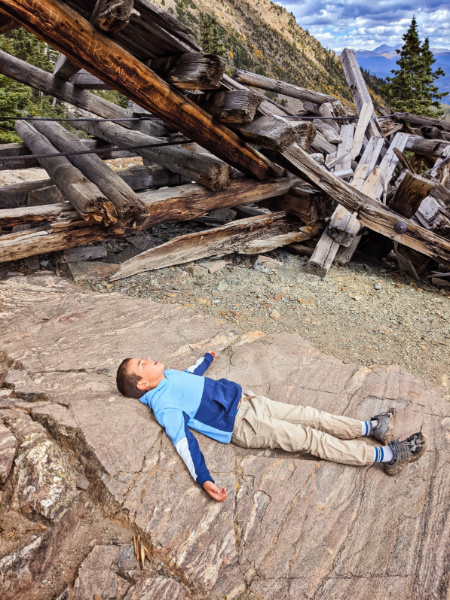
Where do you experience altitude sickness?
While there isn’t a specific vortex that altitude sickness occurs in, it is most common when people travel above 5000 feet. A great example of where people start to feel the impacts of the elevation and when sickness can begin is when somebody heads for a weekend in Denver or up to Yellowstone National Park and jumps right into strenuous hiking and lots of physical exertion.
Places like the high desert of Arizona or if you’re heading out hot air ballooning in New Mexico will have an impact. Even if you do a lot of hiking and physical activity at home, traveling to new places with very different climates AND higher elevation can impact you very quickly. Hiking at Mount Rainier National Park can take you very high up the mountain, and while it may not be as intense seeming as Breckenridge, Colorado or hiking Machu Picchu in Peru, it can have an impact if you are not used to the elevation.
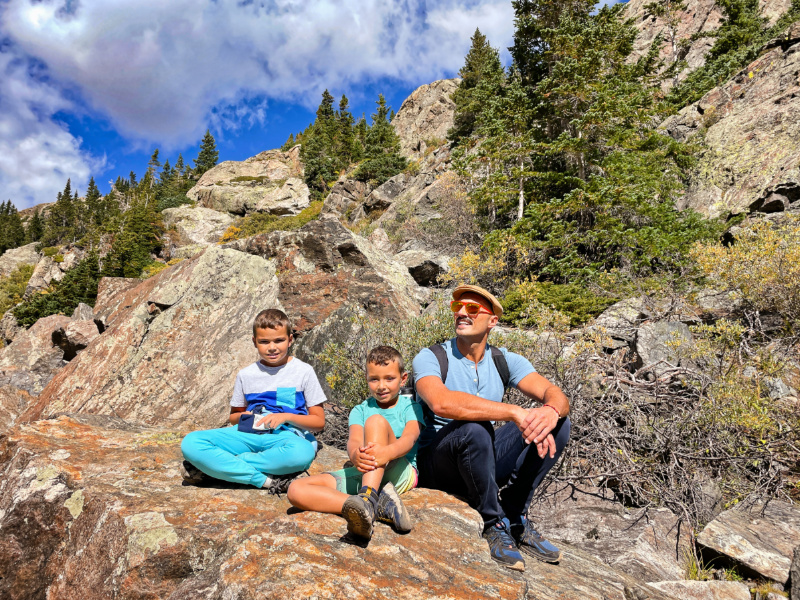
How to Tell if You’re Suffering from Altitude Sickness
There are some tell-tale signs that altitude sickness is hitting you. Even if you pay attention, it may take you by surprise. For me, the first symptom I feel and observe is shortness of breath and having tightness in my chest. For our oldest, he gets minor headaches that we try to head off at the pass before they turn into a painful experience.
Pay attention to small things that indicate that your body is responding to being at a high elevation. You’ll no doubt feel chapped lips and crunchy nasal passages to start, but take note of how simple activities make you feel. Going up a flight of stairs may leave you winded and you might need to take a moment to recover. If that feeling of fatigue and strain continues, altitude sickness may be setting in.
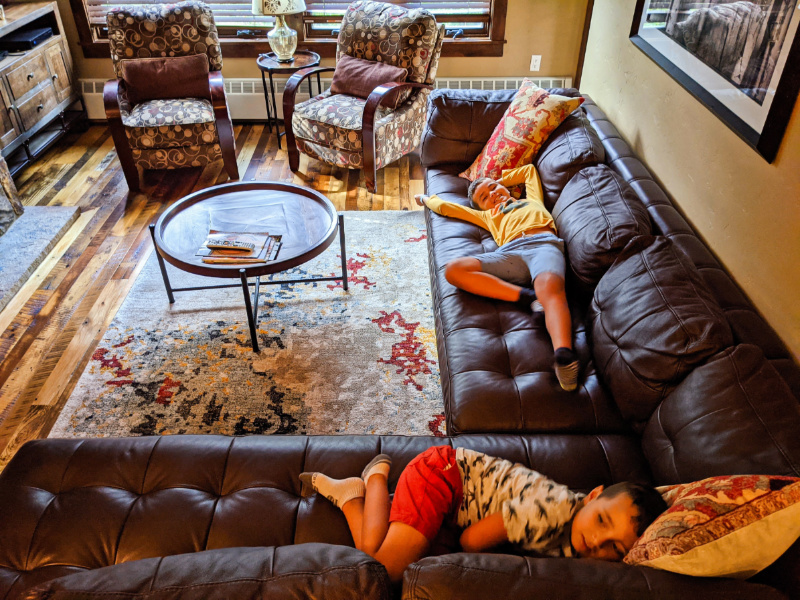
Best Tips to Prevent Altitude Sickness
Just like you can work to stay healthy when cold and fly season hits, you can be proactive to prevent altitude sickness. These are our best tips to avoid becoming ill or suffering the symptoms of being at a high elevation:
- Drink tons of water – drink so much water that you feel awkward how much you’re drinking
- Eat foods with a little more salt than you might normally
- Avoid alcohol – drinking alcohol when your body is dealing with new elevations can really hurt you; think epic hangover from very little drinking
- Take time to acclimate – if you can, gradually increase your elevation until you’re at your destination altitude; if you can’t work your way up, really take it easy with low-impact activities for the first few days at a higher elevation
- Sleep – get enough sleep that your body can acclimate and recover; you may sleep poorly for the first few nights, so take that into account when planning your activities.
These are our best tips to prevent altitude sickness, but nothing is fool-proof. The best way to keep from being negatively impacted by the elevation is to listen to your body and follow its cues. Don’t be a hero by hitting the ground at breakneck speed at ten thousand feet. Crawl before you run.

How to Deal with Elevation’s Effects on You
If you didn’t get ahead of the curve and are suffering the symptoms of altitude sickness, the best thing to do is to slow down. Let your body rest and absorb fluids and electrolytes. As you notice that you’re more fatigued than normal, take time to just sit and enjoy the scenery. If you’re starting to feel dry on the inside, set up a humidifier in your hotel room. Moisturize your skin and lips to keep your body feeling good.
Something that we discovered was not helpful in mitigating altitude sickness was using a hot tub. While taking a short bath was great and was a nice recharge and relaxing method, being in a hot tub was not. Even a nice salt water hot tub is a bit much and can make the fatigue and body ache worse. Hot tubs are great therapy for some types of ache and pain, but altitude sickness is NOT one of them.
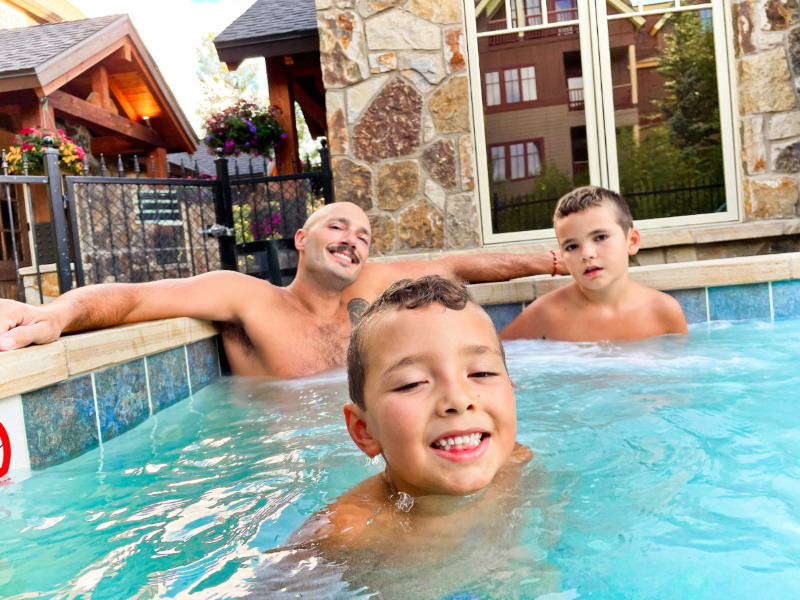
Best Ways to Recover from Altitude Sickness
Rest and hydration are the two best things you can do to recover from altitude sickness. If you’re on your dream vacation and the elevation is making you physically ill, take the time to allow your body to recover before over-exerting yourself. Eat foods that are jam-packed with nutrition and electrolytes, including drinking beverages like Pedialyte or other recovery drinks.
If altitude sickness has set in after a series of physical events, like maybe a few big hikes, the best thing to do is to eat some salty crackers, drink a glass of water, and then lie down for a bit. We avoid taking pain killers whenever possible, and when your tummy is upset as a part of Acute Mountain Sickness, you may not want to either.

While much of this may seem like common sense, I’ll tell you, it really isn’t. Normal, everyday activities like going for a short hike or having a beer have a drastically bigger impact on you physically at high elevation. I hope you can learn from our experience and take the right steps to prevent yourself and your family from having a case of altitude sickness during your travels.
If you have additional tips to prevent or recovery from the impacts of elevation, please leave a comment or send us a note. We’re happy to share more ways to stay healthy while traveling!
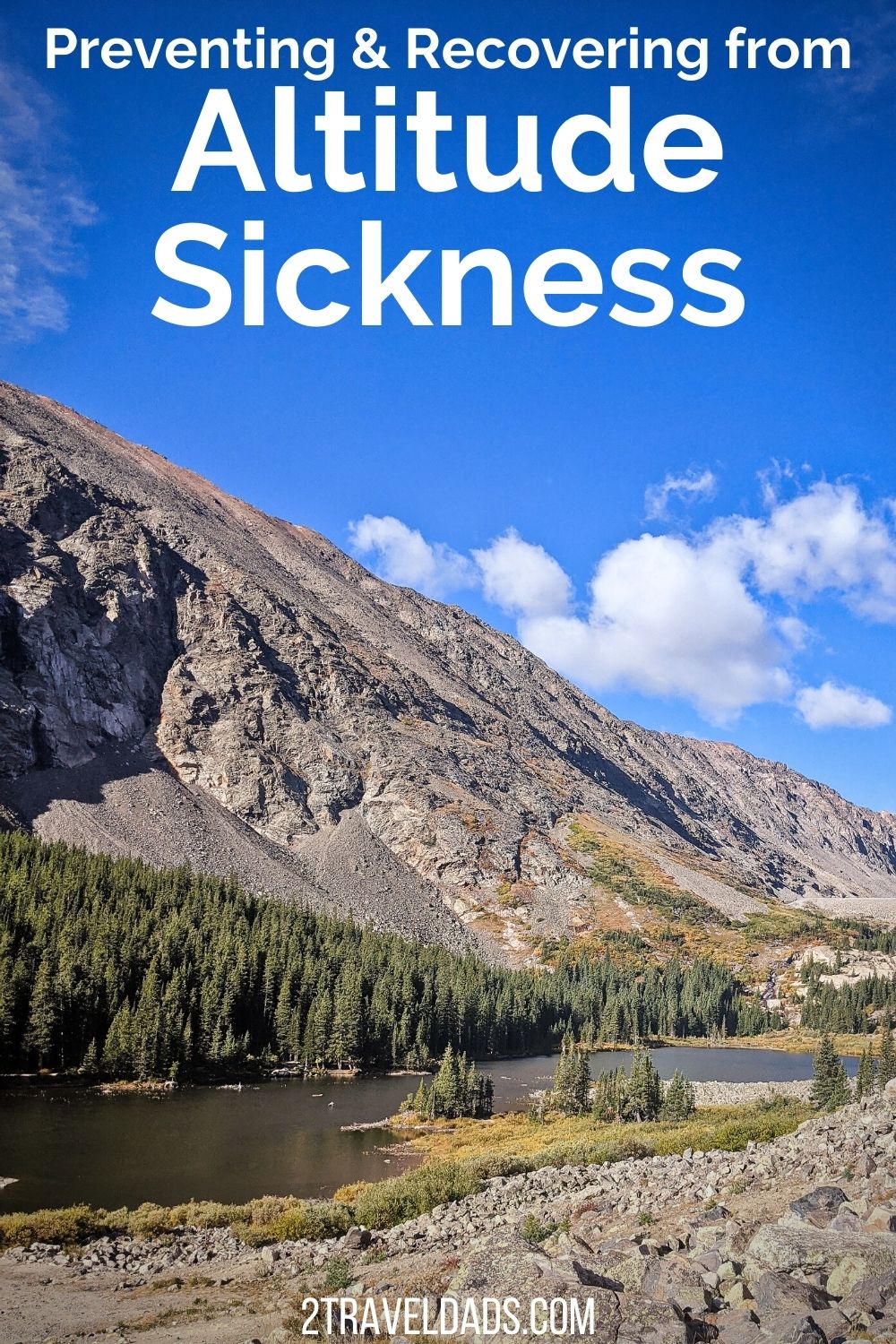



Great article and very true. Last summer while taking a non-strenuous hike at a high elevation in Yellowstone I passed out and had a seizure. It was very traumizing for my kids and husband. The hospital attributed it to elevation and dehydration. It was early morning and I only had a cup of coffee. Looking back I should have drank alot more water and food ahead of the hike like you also mentioned here.
Oh wow! Scary! Yes, We’ve never been impacted by elevation like we were in Colorado. I had a tough time and got really sick after hiking in NM once, but even then, I was able to recover better than with sustained days and activity without properly taking care of myself. It’s so important to pay attention to our bodies’ signals!
I like how you said that getting enough sleep can help your body adjust and recover from a change in elevation to prevent altitude sickness. My two older brothers and I are going on a ski trip in two weeks, and we want to avoid altitude sickness if possible. I think that along with proper sleep, it would be smart for us to rent oxygen concentrators that we can take on our trip with us.